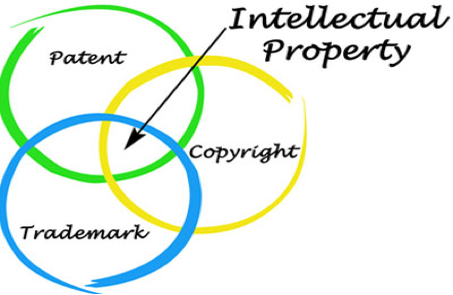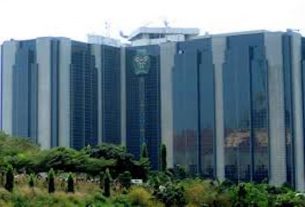This Piece seeks to explore the possibility of Directors occupying the role of employees in a company and also seeks to answer the question of ownership over intellectual properties created by them in such companies and in such capacities.
What is intellectual property?
Intellectual Property (IP) can be defined as a category of intangible rights protecting products of the human intellect. The term Intellectual property (IP) refers to the body of work which is the result of a creative human mind or intellect.
IP protects the interests of creators in their innovations, giving them property rights over same. The concept of IP draws life from the principle that certain products of the human intellect should be afforded the same protective rights that apply to physical property.
Indeed the objectives of IP law are to protect the rights of IP owners; to enable them reap the rewards of their creativity. Intellectual property (IP) rights serve the important purpose of ensuring that creators will be recognized and rewarded for their efforts as well as protected from infringement or from unfair advantage being taken of their work or reputation. It also provides remedies where any of the above situations arises.
The owner is granted certain exclusive rights to a variety of intangible assets such as literary and artistic works, discoveries and inventions, words, phrases, symbols and designs.
The main purpose of this protection is to provide incentives to boost economic productivity.
There are three basic categories of intellectual property namely
- Copyright
- Patent
- Trademarks

Copyright law protects a variety of literary and artistic works, including paintings, sculpture, prose, poetry, plays, musical compositions, dances, photographs, motion pictures, radio and television programs, sound recordings and computer software programs. Trademark law protects words, slogans and symbols that serve to identify different brands of goods and services in the market place while Patents are legal rights that are conferred on inventors of new and useful products and processes which meet the legal requirements for protection.
Protectable subject matter includes products or processes that are new and useful for diverse purposes including transport, health, communications, household equipment, etc. Patent grant is to confer on the patentee, the right to exclude others from certain commercial acts of exploitation of the invention.
Understanding the concept of ownership of Intellectual Property by Companies?
A company’s intellectual property comprises of a set of intangibles owned and legally protected by a company from outside use or implementation without consent.
A company ordinarily is seen as an association of persons for some common object or objects united for economic purpose i.e. to carryon business. But once registered under the Companies and Allied Matters Act (CAMA), it is automatically vested with a distinct legal personality separate and distinguishable from the individual persons who form it, thereby enabling it to own both tangible as well as intangible assets[1]. By intangible, we mean intellectual properties.
The question of intellectual property ownership between directors and companies has become an issue of legal contention. The fact that directors in accordance with our company law jurisprudence are not regarded as employees has put the question of Company intellectual property ownership in a rather two-sided position. Hence the question; Can directors own intellectual property they develop for the company? This question will be efficiently answered in the ensuing paragraphs.
To answer the question, it is pertinent to establish the position directors occupy in the company; are they employees or independent contractors?
Sections 244(1) & 245 (1) CAMA define directors as follows;
“directors of a company registered under this Act are persons duly appointed by the company to direct and manage the business of the company’’
In accordance with these provisions, the office of a director in a company is hardly one of employment and directors are as such not generally regarded as employees. Hence the question; when can a director be referred to as an employee? We envisage a situation where the company enters into a service contract with the director wherein the said director becomes an employee. Although still being regarded as a director, he automatically wears the shoes of an employee.
In Nesbitt & Nesbitt V Secretary of State for Trade and Industry[2]; the Appellants were husband and wife who entered into contracts of employment with a company, APAC Computer Training Ltd., which they managed. Between them, they also owned 99.99% of the company’s shares (the wife having 51.99% while the husband owned 48%). Mr. and Mrs. Nesbitt were directors of the company and managed it on a day-to-day basis. When the company became insolvent, they claimed against the Secretary of State under the insolvency provisions of the Employment Rights Act, 1996. The Employment Tribunal held that by reason of their joint control of the company, they could not be employees. Appeal allowed: the fact of their control was not sufficient to deprive them of employment status if they otherwise satisfied all the criteria for employment.
Mr. Justice Underhill stated,
“I believe that the law is that the fact that a claimant under the employment protection legislation is a majority shareholder and a director of the company which employs him does not affect his status as employee unless the tribunal finds that the company is a ‘mere simulacrum’… and thus, by the same token, that the contract between it and the putative employee is a sham.”
One of the relevant factors to be taken into consideration in cases such as this is the existence of a contract of employment for the shareholders that are also directors.
In this case, apart from the level of control they had over the company, all the indications were that Mr. and Mrs. Nesbitt were employees. They had proper employment contracts (equivalent to those issued to other employees), they received all their remuneration by way of salary and they ‘behaved like employees’.
In Secretary of State for Trade and Industry v Peter Bottrill[3] it was held that there is no rule of law to suggest that a sole director and owner of majority of shareholding, could not be an employee of that company, and be entitled to a redundancy payment upon the liquidation of the company.[4]
Can a Director then own an intellectual property created by him for the company?
As a general rule, authors are the first owners of copyright in their works but section 10 (2) of the Copyright Act provides some exceptions to this general rule. One of the exceptions is where there is a contrary stipulation in a written contract between parties. This may be a contract of employment (contract of service) or any other contract between the parties which is in this case a Directors service contract agreement between the company and the director.
On this note we can safely draw a conclusion that company directors are usually not referred to as employees, however, where a director’s service contract[5] (a contract of service) has been executed between a company and its directors, it confers on the director, the status of an employee thereby vesting the ownership of intellectual property created by them solely on the company. Thus, ownership of copyright is automatically vested in the company. So as long as the Intellectual property has been created in the course of the employment, the organization takes ownership of it.[6]
EDITORIAL TEAM
1. Ikechukwu Nwakanma
(Senior Partner)
Ikechukwu.nwakanma@nakudulawpartners.com
2. Anthony Madukwe
(Senior Partner)
anthony.madukwe@nakudulawpartners.com
3. Emmanuel Omole
(Senior Associate)
emmanuel.omole@nakudulawpartners.com
4. Isimeme Andrew
(Associate)
Isimeme.andrew@nakudulawpartners.com
OUR OFFICES
1. 34, QUEEN ELIZABETH CRESCENT, ASOKORO, ABUJA.
2. NO. 13D, ISA DUTSE STREET, OFF UMARU BABURA ROAD, BOMPAI GRA, KANO, KANO STATE.
DISCLAIMER: This article is only intended to provide general information on the subject matter and does not by itself create a client/attorney relationship between readers and our Law Firm or serve as legal advice. We are available to provide specialist legal services on specific circumstances.
[1] Section 37 of CAMA provides that; as from the date of incorporation mentioned in the certificate of incorporation, the subscriber of the memorandum together with such other persons as may, from time to time become members of the company shall be a body corporate by the name contained in the memorandum, capable forthwith of exercising all the powers and functions of an incorporated company including the power to hold land and having perpetual succession and a common seal, but with such liability on the part of the members to contribute to the assets of the company in the event of its being wound up as is mentioned in this Act.
Salomon V Salomon Co Ltd [1896] UKHL 1, [1897] AC.
[2] [2007] UKEAT 0091 – 07 – 1008.
[3] CA [1999] EWCA Civ 781, [1998] IRLR 120, [1999] IRLR 326, [1999] ICR 592, [1999] BCC 177)
[4] See also Gladwell v Secretary of State for Trade and Industry[4] (2006) UKEAT 033-6-2510, UKEAT/0337/06, (2007) ICR 264.
[5] A director service contract is a contract by which the company hires a director as an employee. The Director’s service Agreement is a long form contract with detailed provisos on various aspects of employment.
[6]Joseph Ikhuoria v Campaign Services and Anor (1977-1989) 2 I.P.L.R. 316.



